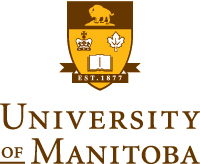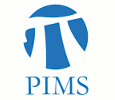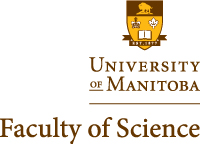2014 CMS Summer Meeting
University of Manitoba, June 6 - 9, 2014
Org: Darja Kalajdzievska (University of Manitoba) and Anna Stokke (University of Winnipeg)
[PDF]
- GERDA DE VRIES, University of Alberta
Hands-On-Heads-On Activities for the Discovery of Mathematics in Elementary Schools [PDF]
-
I will share two activities that I enjoy taking to elementary schools to engage students in mathematical thinking. The first activity is a playful exploration of polygons and polyhedral that culminates in the development of Euler’s Formula, which relates the number of surfaces, vertices, and edges in a polyhedron. The second activity is an exploration of Steiner’s Tree Problem, namely to find the shortest path connecting a given set of points.
- MALGORZATA DUBIEL, Simon Fraser University
Remedial Flipped [PDF]
-
Introduced in 2006, SFU FAN X99 (Foundations of Analytic and Quantitative Reasoning) is a compulsory course for students whose math 11 grades fall below 70%, designed to help those students to prepare for university level quantitative courses, varying from Precalculus and Mathematics for Elementary Teachers to Economics 105, Introductory Statistics and such.
The course employs many features of a “flipped classroom”. Class work is based on solving problems (without a calculator!). Theoretical concepts are introduced when the problems being worked on require them. Students are expected to complete assigned readings to learn (or review) and practice concepts prior to the class in which they are needed.
I will describe how the course works and why we consider it a success.
- DARJA KALAJDZIEVSKA, University of Manitoba
Taking Math Students from 'Blah' to 'Aha': What Can We Do? [PDF]
-
Students coming from high school entering university level mathematics courses are not always prepared for the level of content, assessments, and teaching environment that they face. This talk will present some research and strategies which may help to bridge this gap by re-thinking some of our teaching practices at the university level. Examples including some non-traditional approaches to assignments, exam review sessions, and test questions in Introductory Calculus and Differential Equations classrooms will be highlighted, as well as student responses and feedback.
- MILE KRAJCEVSKI, University of South Florida
Challenges with using visual representations in undergraduate mathematics [PDF]
-
We will reflect on the role visual representations of mathematical objects play in
students' ability to formulate mathematical arguments. Some of the difficulties
associated with using visualization as a facilitator of mathematical cognition, stem
from our inability to escape the typical representations of the basic mathematical
concepts.
- ROBERTA LAHAYE, Mount Royal University
Integrating Mathematics and Art for Pre-Service Elementary Teachers [PDF]
-
The speaker teamed with an art educator from the faculty of Education to develop and twice co-teach a course for pre-service elementary teachers dealing with integrating mathematics and art in the elementary classroom. This talk will address the insights gained from the experience.
- DAVID LEEMING, PIMS - University of Victoria
The Math Mania Outreach Program [PDF]
-
We will give the history of Math Mania in the Greater Victoria area and
describe how an MM event is organized. We will also talk about our
outreach into First Nations communities on Vancouver Island and
elsewhere in BC. We will describe a number of the activities we
use for Math Mania and present photos from the actual MM events.
- MIROSLAV LOVRIC, McMaster University
Advanced Math Problem-Solving Course at McMaster [PDF]
-
Math majors take many math courses, but can they actually DO mathematics? To provide my third-year students with an opportunity to think, hypothesize, investigate and problem-solve (as opposed to listen and take notes), I designed a sequence of problems that they had to work on, individually or in small groups. After briefly describing the design of the course, I will discuss my students' experiences with this (for many) different approach to working with new math material. One of major challenges for my students was writing a computer code needed to investigate problems, generate examples and formulate hypotheses.
- SHERRY MANTYKA, Memorial University
Developing Automatic Recall of Basic Skills in Mathematics [PDF]
-
In “A Case for Automatic Recall”, forthcoming in The International Journal of Science, Mathematics and Technology Learning, I describe the need for the learning of basic skills in mathematics in terms of research results from cognitive and developmental psychology. In this presentation, I will describe some psychological principles governing the structure of the type of practice required to develop automatic recall in the manner required to enable the learner to consistently apply correct rules when engaged in problem-solving activities. The sources for the applicable research results have not illustrated applications of their results in the learning of mathematics, but rather, in the context of attaining levels of expert performance in sports, and more recently, in financial management under conditions of exigency and music, for example. A cogent point to be made here is that in mathematics, the level of complexity of the integration of component skills exceeds that generally required in athleticism, even at an expert level, because the number of component skills is much larger. This aspect in the learning of mathematics also complicates the design of appropriate practice because of the intertwining of component skills as more advanced topics are introduced. In my presentation, I will specifically demonstrate this point for order of operations, beginning with primary level addition and subtraction of whole numbers, through elementary level arithmetic of numeric fractions, junior high level arithmetic incorporating negative numbers and exponents, and finally, senior high algebra with variables and functional expressions incorporating trigonometry and logarithms.
- ROSSITZA MARINOVA, Concordia University College of Alberta
Increasing the Appreciation of Mathematics in Canada through the Canadian Math Kangaroo Contest [PDF]
-
The Canadian Math Kangaroo Contest (CMKC) aims to increase the appreciation of mathematics for Canadian students in grades 1-12 in a number of ways. Since its inception, the CMKC has found many ways to expand the reach and scope of its unique program, and to build new, complementary programs based upon the competition.
The competition’s purpose is to attract as many students as possible and show them that mathematics can be accessible, useful, interesting, and even fun. Since joining the International Association “Kangaroo without Borders” in 2006, the CMKC has formed hosting partnerships with multiple universities and prestigious organizations across the country. Over the past 9 years, the CMKC has grown significantly from its humble beginnings with approximately 300 participants at 3 locations to 3332 students nationwide in the 2014 competition at 26 locations.
Training activities were developed as a direct response to the parents and participants’ request for more practice opportunities. All training activities provide participants with rich instructional and problem solving experience, as well as with opportunities for socializing and communicating with other people of similar interests.
All of the components of this national program are inclusive and open to students from a diverse range of abilities, regardless of their gender or family and financial backgrounds. The mathematically promising students from all ages uniquely benefit from the CMKC program. These students are usually under-served in the public education system, which does not provide them with enough challenging and motivating tasks.
- R. PADMANABHAN, University of Manitoba
Mathematical Hobbies for the iGeneration [PDF]
-
Today's school kids are addicted to tech tools like Google, Twitter, Facebook and the Smart phones. It is our collective responsibility to embrace the kids of this smartphone generation and to make them take interest in hobbies related to mathematics. I still remember my high school hobby of mathematical philately. But our kids today may not even know what philately means because we do not use postage stamps anymore. Times have changed and we need to reorient ourselves to teach our kids new ways of "seeing" mathematics everywhere. In this presentation, I would like to share some of my thoughts as how to respond to these new challenges and opportunities. Smart phones are great as teaching tools. I strongly believe that there is a use for photography in the math classroom – another way to get kids engaged. Once properly guided, our students will realize that the world is full of mathematics: parabolic shapes of the water fountains, catenaries of famous arches, curvy architectures, dome geometries, sun flowers, sea shells and even hand-carved formulas. Using the graphic calculator apps, one can make real-world connections by importing images from the built-in camera (or photo library) and overlaying graphs and equations on them to appreciate the mathematics underlying the real world. A smartphone math class, math photo competition and a math photo exhibition can be arranged to encourage the students to take part in such innovative activities.
- BRYAN PENFOUND, University of Winnipeg
The Flipped Classroom Model in Post-Secondary Education [PDF]
-
The flipped classroom model, generally accepted to have roots at Woodland Park High School with Aaron Sams and Jonathan Bergmann, is an educational model in which students students engage in traditional instruction outside of the class - freeing up class time for the instructor to focus on other activities. We explore how implementation of this model may be accomplished in post-secondary education, reflecting on experiences from our Linear Algebra I classroom.
- ANNA STOKKE, University of Winnipeg
Math outreach in Manitoba [PDF]
-
I will speak about outreach that my colleagues and I undertook to influence the direction of the K-12 math curriculum in Manitoba. I will also discuss my work with children at Archimedes Math Schools, a non-profit organization that I co-founded to provide after-school math classes for children in Grades 4-6.
- TARA TAYLOR, St. Francis Xavier University
Mathematical Variations on Woven Figure Eights [PDF]
-
Certain forms of traditional mat weaving practiced in several regions of Southeast Asia involve open-work, i.e., folding back specific strands to forms discrete holes in the surface of the mat. These techniques present the potential for mathematical exploration that can lead to the creation of plaited forms with interesting mathematical properties. This talk will focus on simplified versions of this technique that produce artifacts which are variations of figure eights. The artifacts provide visual representations of different mathematical concepts such as symmetries, permutations, modular arithmetic, parity, and equivalence relations. Various models will be displayed during the talk. Hands-on activities can be used in mathematics classrooms of various levels, from elementary school to upper level undergraduate math courses.
- PAMINI THANGARAJAH, Mount Royal University
Mathematics Minor for Elementary Education at MRU: An Innovative Collaboration with Education [PDF]
-
At Mount Royal University, we had an opportunity to develop a minor in mathematics program for the Bachelor of Education, Elementary. For this program, we have designed core courses that are intended to give students a deeper understanding into specific concepts that they will be teaching in elementary math classes. In this talk, I will give an overview of this innovative program and the core courses.
- STEPHEN WILSON, Johns Hopkins University
Textbooks and real world problems [PDF]
-
We'll take a look at some text books and their "real world" problems and see the disconnect between their attempt to bring mathematics into the real world and the actual real world.







